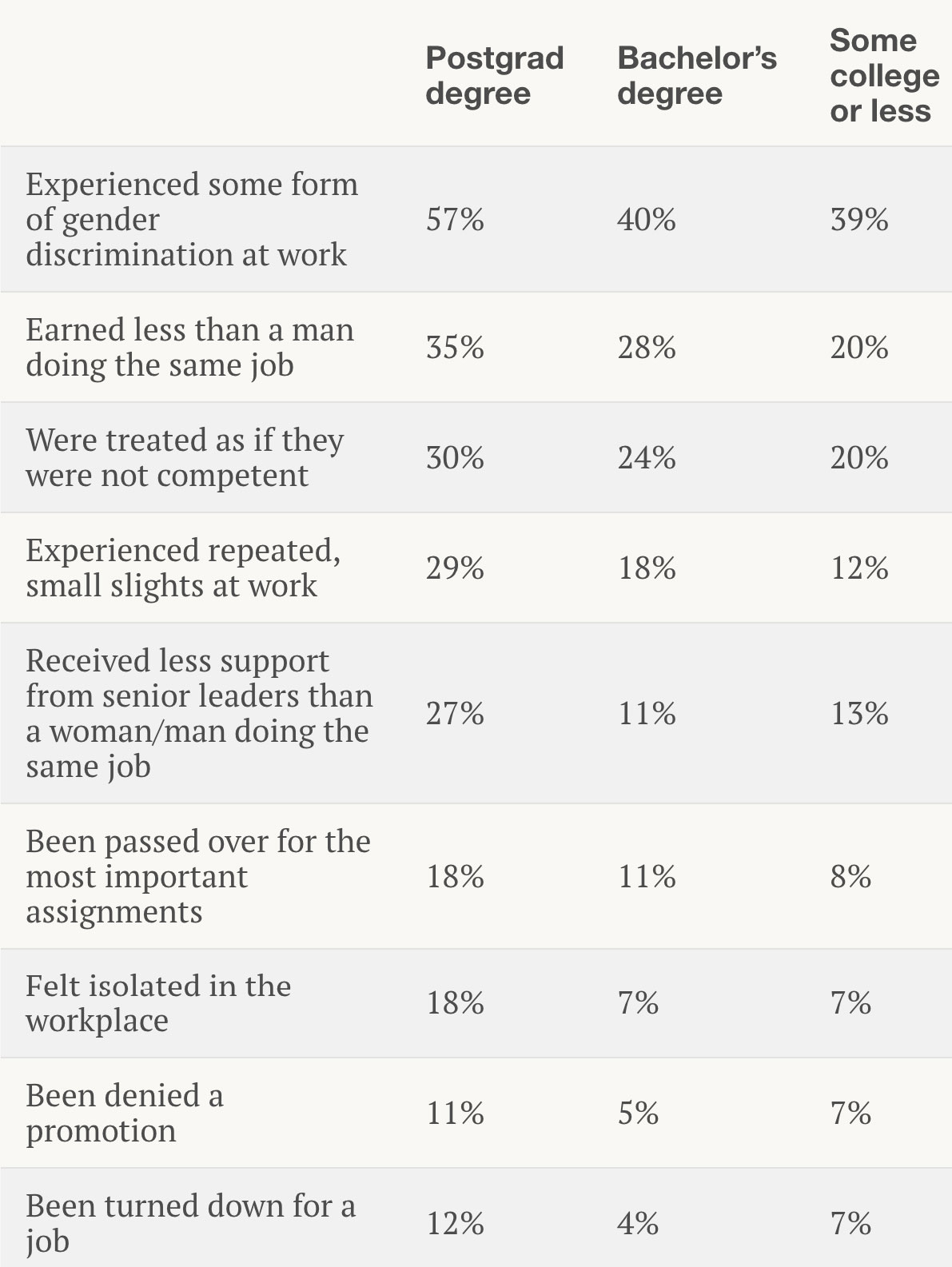
Peshkova/Shutterstock.com
Women With Postgrad Degrees Are More Likely to Report Experiencing Sex Discrimination at Work
The pattern holds steady for every major form of gender-based discrimination.
According to a new Pew Research Center study, 42% of working women in the US say they’ve faced gender discrimination at work. This discrimination includes experiences like earning less than male counterparts, being the target of sexual advances, receiving less support from leaders, and getting passed up for promotions. Conducted months before the #MeToo movement surged, the survey polled a nationally representative sample of 4,914 adults, including 4,702 who are employed at least part time.
Unsurprisingly, women were far more likely than men (42% versus 22%) to say they’ve experienced at least one of eight specific forms of gender-based discrimination at work. But the experience was not equally distributed among women. While the influence of race, ethnicity, and political party on perceived workplace sexism have been well documented, an intriguing finding of this survey is that women with postgraduate degrees were the most likely to say they have experienced gender discrimination.
“While 57% of working women with a postgraduate degree say they have experienced some form of gender discrimination at work, for example, the same is true for 40% of women with a bachelor’s degree and 39% of those who did not complete college,” reports Pew. This pattern held steady in every form of gender-based discrimination the women were polled on, as represented in the table below. (“Some college or less” includes those with an associate degree and those who attended college but did not obtain a degree.)

Cary Funk, director of science and society research at Pew Research Center, and one of the study’s lead authors, speculated on these findings: “Women at different education levels tend to be working in different kinds of jobs. For example, women with postgraduate degrees are much more likely to be working in professional and managerial positions,” she told Quartz At Work. In addition to working different kinds of jobs, women with postgraduate degrees may also experience higher levels of gender-discrimination awareness and attention, Funk added. Meanwhile, a recent algorithmic analysis by Palatine Analytics, a Boston-based firm using artificial intelligence to understand work, also found that sexist gender biases were even more pronounced among employees in senior roles.
It may seem counterintuitive that women with more managerial power are more likely to report experiencing workplace sexism than women in subordinate roles. Yet higher degrees are often correlated with higher roles in one’s organizational hierarchy. As the funnel narrows, competition for fewer positions can intensify—and the higher one rises, the more likely it becomes that their peers are predominantly, if not all men: In the S&P 500, just 25% of executives and 5% of CEOs are women. And more than a fifth of the companies in the Russell 3000 still have all-male boards (here’s the full list of them).
It’s also worth considering that in many industries, as you move up the food chain, your work becomes more qualitative—and therefore harder to evaluate objectively, and more susceptible to gender biases.






